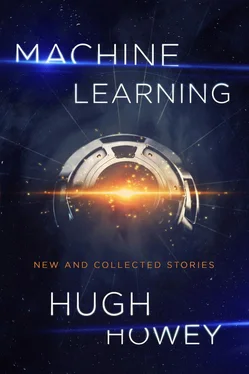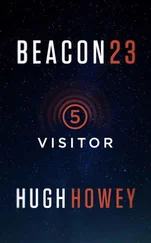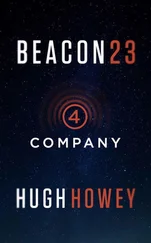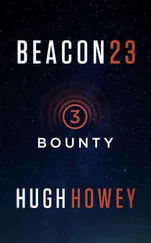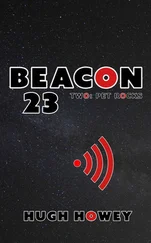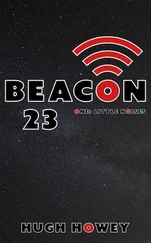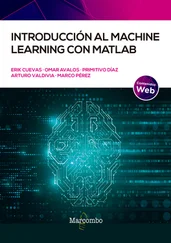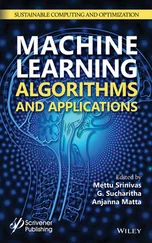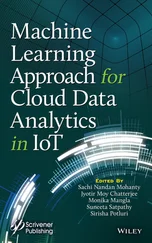Hugh Howey
MACHINE LEARNING
NEW AND COLLECTED STORIES
As I sit at my desk writing this, Hugh is sailing around the world.
Like many of his friends, I follow his travels with no small degree of admiration, satiating my own twitching wanderlust vicariously through his seaborne adventures from South Africa, to New York, to Cuba, and on to the Panama Canal.
I smiled along with his legions of fans as he sent out a call via Facebook for a potential crew member—someone to help out as he crosses the Pacific:
Looking for someone who can teach me Spanish and how to play piano. Must be an expert backgammon and chess player. Likes cheese and wine. Plays video games and operates a camera in manual mode. Enjoys yoga, paddleboarding, and billiards. Takes brief showers. Sailing experience not required.
Unsurprisingly, there were literally hundreds of eager and willing sea dogs of every stripe volunteering for that daunting (and potentially dangerous) leg of his journey.
As I read the comments, I couldn’t help but stare out the window at a snow-covered field here in Montana, where the temperature was just inching up to zero. I remembered Hawaii, where I’d once lived for six years. I recalled countless weekends spent aboard a friend’s boat, on the leeward side of Oahu, diving with reef sharks, sea turtles, and schools of wrasse and butterfly fish.
Then I remembered a long day, standing on the bow pulpit, turning green in high surf.
I returned to the online discussion, adding, “You would get bored watching me barf over the rail.”
Hugh replied, “I would never tire of that.”
That’s Hugh, the kindest, most joyful contrarian you’ll ever meet.
Where some people are antagonistic by nature—loving to argue for the sake of cruel, intellectual sport, or rebelling against convention just to play the devil’s advocate—Hugh is a completely different kind of contrarian. He just naturally sees what most people don’t. He recognizes patterns of human behavior and instinctively moves in the opposite direction, with eyes wide-open, exploring.
As a writer, he manages to somehow divorce himself from the preconceived notions most of us wear like millstones around our necks for the balance of our waking lives.
This was evident as we had breakfast a few years ago in Milan, Italy—where our separate book travels happened to intersect. I remember how talking to Hugh about writing, publishing, politics, religion, artificial intelligence, and human sexuality was like discovering things all around me that I didn’t know were there.
He left me scratching my head, asking myself, “How did I not notice?”
That’s what reading this collection is like.
These stories feel like going back to your childhood home and discovering there are secret rooms you’ve never explored.
Some of these rooms are unique expressions of artificial intelligence—not the broad AI overlords that typify speculative fiction, but tales of narrow AI discovering itself, seeking purpose, and, dare I say, enlightenment. Stories like “Machine Learning” and “Glitch” will leave you revisiting your ideas of intelligence and broadening your concept of humanity.
While other rooms in this collection are devoted to alien worlds, observed from 62,000 feet above, in “The Walk up Nameless Ridge.” Or Earth, seen through the eyestalks of tentacled soldiers—the grunts who make up an invading armada in “Second Suicide.”
There are rooms devoted to dark fantasy like “Hell from the East,” and waiting rooms for desperate and benevolent deities in “The Good God,” and the all-too-spacious loneliness of virtual worlds in “The Plagiarist.” And there are rooms that stretch our concepts of love when augmented by technology, time, and space with “WHILE (u > i) i- -;” and “The Automated Ones.”
Of course, there’s the big, deep room devoted to Silo, the epic world Hugh has created and open-sourced to his fans and aspiring fantasists. Rather than tease us with alternative characters we hardly know, he serves up his main protagonist, Jules. (I’d say more, but I don’t want to spoil anything—read on and you’ll understand.)
Finally, there is the soul-baring masterpiece of “Peace in Amber,” a Hugh Howey story interlaced with Kurt Vonnegut’s world of Slaughterhouse-Five. This is a story based in real emotional pain and loss—the vulnerability of this novelette is its strength. Its honesty—its gritty reality—is what propels this fantastic, surreal journey. It’s one of the most heartbreaking and satisfying stories I’ve ever read.
So when asked to write a foreword for this collection, I was honored and a bit tongue-tied, honestly. (Picture Garth from Wayne’s World bowing and exclaiming: “I’m not worthy!”) But I knew that I’d get to read many of these stories all over again, plus the new ones—which was like a system upgrade for my brain, for my imagination.
The experience was so profound and enlightening, it almost had me imagining being on Hugh’s catamaran, Wayfinder, standing at the helm, crossing the Pacific, watching the sunrise, somehow not turning green.
Almost.
Jamie Ford Great Falls, Montana January 2017
I’ve always wanted to be a truck driver. For years, this felt like what I should be doing with my time. I tried to convince a girlfriend once to quit school so we could be a long-haul team and crisscross the United States in a Peterbilt. The hours and hours of staring at the horizon appeals to me, the time to get lost in one’s thoughts, the self-contained world of sleeper cabs, some mechanical issue that always needs fixing, the roadside diners full of colorful characters.
It took me a while to realize what I really wanted was to be Han Solo, who long ago drove a big rig named the Millennium Falcon all over a galaxy far, far away. I saw Star Wars when I was very young, and I’ve wanted to be Han Solo ever since. A vagabond with a personality type that role-playing peeps would recognize as chaotic good (the sort of person who breaks rules, but in the name of serving a moral purpose). Sadly, my girlfriend was not enthused with the idea and decided to stay in school. (Pro tip: Don’t let someone you date think they’d make a wonderful Wookiee.)
The truck driver dream was put on hold, but it didn’t die. In college, I met a ballet dancer who lived on a small sailboat in Charleston Harbor. I had no idea people did such a thing. The small boat was like my beloved sleeper cabs, but afloat. I immediately started searching and found a boat I could afford several states away. I read a few books on ocean navigating and then nearly got my best friend and myself killed sailing around Cape Hatteras in a winter norther.
But I had my Falcon at last. And as the semesters dragged on, the horizon beckoned. I couldn’t just sit still; there was too much out there to see. So I dropped out of college after my junior year and made my way to the Bahamas. What I discovered there is a world completely alien from the life I left behind. A world of salty retirees, wannabe pirates, and clashing cultures. Here were all these little clumps of vagabonds bouncing off one another, swapping stories, borrowing tools, trading tips. I was young and broke and would scamper up masts or dive below keels to do jobs other boat owners didn’t enjoy. In exchange, I was given plates of food, which I scarfed down between grunts of gratitude. My hair grew long, I became scruffy, and I probably smelled like a nerf herder. I was becoming Chewbacca.
Читать дальше
